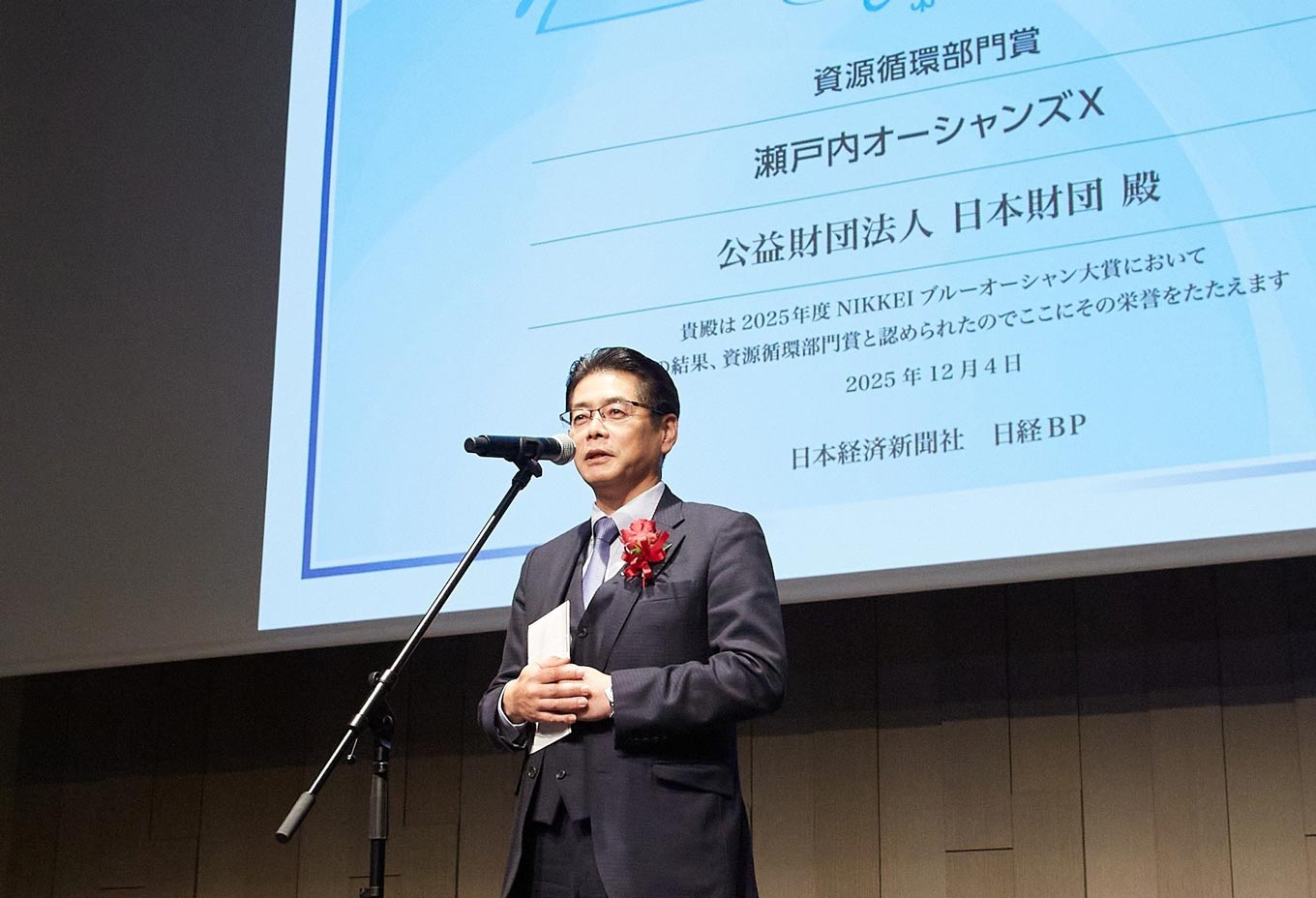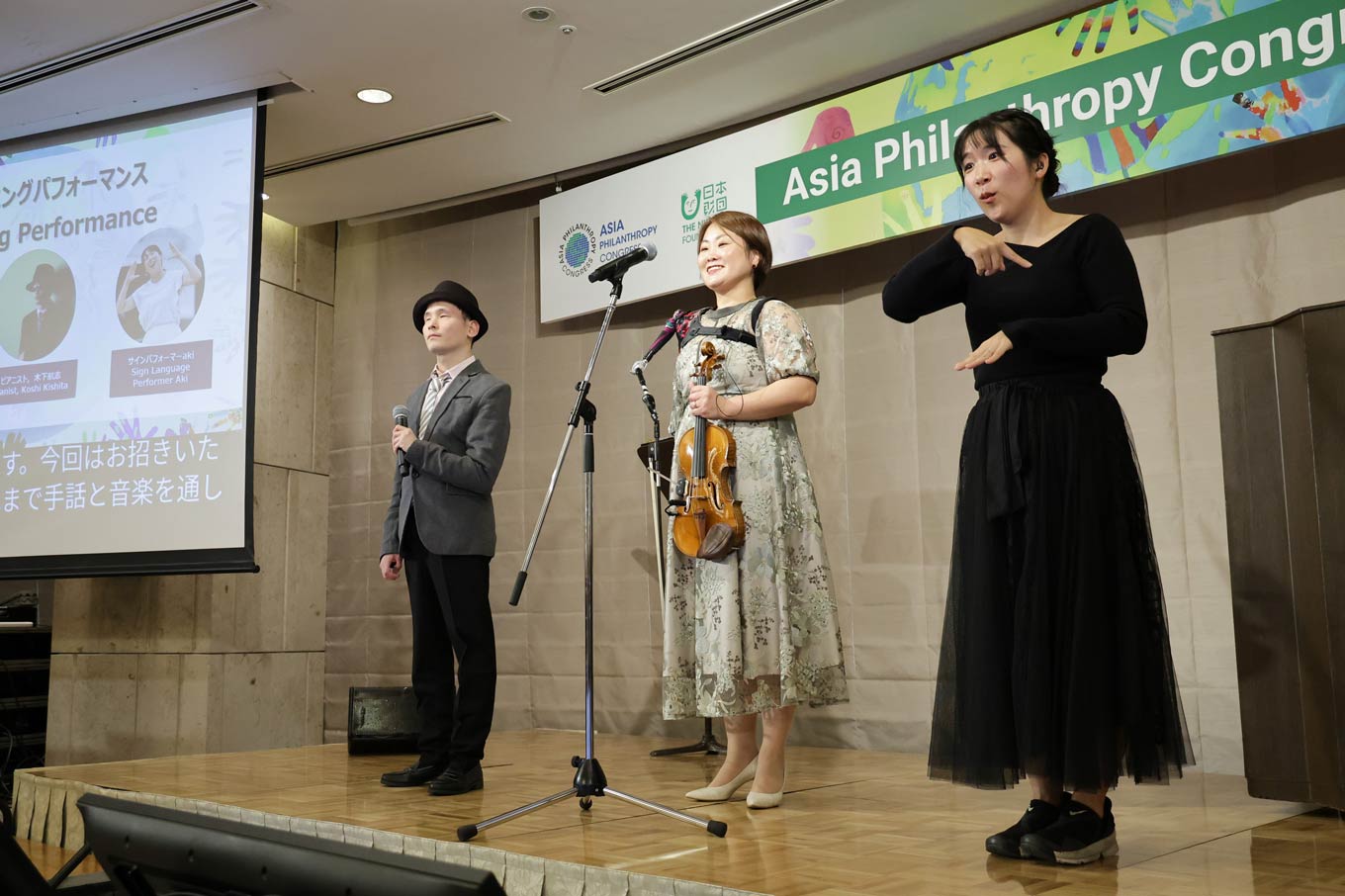Awareness Survey of 18-Year-Olds – Values and Daily LivesResults of 72nd installment announced – No difference among regions in desire to have family, but large difference between men and women

The 72nd installment of the Awareness Survey of 18-Year-Olds was carried out in July on the theme of “Values and Daily Lives.” The survey covered 4,700 respondents – 100 in each of Japan’s 47 prefectures – broken down by four types of regions* and by men and women, and asked about their involvement with society, views on marriage and raising children, and how they spend their vacation time.
With regard to views on gender, marriage, and children, the statement “It is desirable to live as a married couple raising a child or children” has become a subject of attention in light of Japan’s aging, contracting population. In all four types of regions, roughly two-thirds of male respondents either agreed or somewhat agreed with the statement, while among female respondents, roughly half in all four regions either disagreed or somewhat disagreed, marking a significant difference between men and women. The picture from the statement “After a child is born, the woman should have primary responsibility for their upbringing” was similar, with little difference among regions but with 7%-11% of male respondents agreeing, while only 2%-4% of women agreed.
In terms of involvement with society, when asked if the place where they live has traditions, culture, and history that they can be proud of, among both men and women, the percentage agreeing was higher among respondents in regional areas than among respondents in the three major metropolitan areas. In response to where they would like to spend an extended vacation, by respondent prefecture, the overwhelming choice was Hokkaido, which was the top choice of respondents from 33 prefectures, followed by Tokyo as the top choice among respondents from 14 prefectures. When asked what they would like to do during an extended vacation, the top replies were “Study / Self-improvement,” the top choice of respondents from 26 prefectures, followed by “Part-time work,” the top choice of respondents from 13 prefectures. In addition, 60% or more respondents in 22 prefectures replied that they would either “Definitely” or “Somewhat” like to visit the World Expo currently being held in Osaka.
- For the purposes of this survey, respondents’ municipalities are classified into four types, as follows:
| Central sections of three major metropolitan areas (Tokyo, Osaka, Nagoya) | Ordinance-designated cities (i.e. population of at least 500,000) of Saitama, Chiba, Kanagawa, Aichi, Kyoto, Osaka and Hyogo prefectures, and Tokyo’s 23 wards |
|---|---|
| Peripheral sections of three major metropolitan areas (Tokyo, Osaka, Nagoya) | Ibaraki Prefecture, areas other than ordinance-designated cities of Saitama, Chiba, Kanagawa, Aichi, Kyoto, Osaka and Hyogo prefectures, areas of Tokyo other than the 23 wards, Mie Prefecture, Nara Prefecture |
| Central sections of regional areas | Ordinance-designated cities in prefectures other than Ibaraki, Saitama, Chiba, Tokyo, Kanagawa, Aichi, Mie, Kyoto, Osaka, Hyogo, and Nara prefectures |
| Peripheral sections of regional areas | Other than the above |
Highlights of the 72nd Awareness Survey of 18-Year-Olds – Values and Daily Lives
Views on gender, marriage, and child rearing
Percentage of respondents agreeing with the statement, “After a married couple have a child, the woman should have primary responsibility for their upbringing”
- Among male respondents – 29.3%
- Among female respondents – 13.0%
- Total average of respondents from four types of municipalities replying “Agree” or “Somewhat agree”
Percentage of respondents agreeing with the statement, “It is desirable to live as a married couple raising a child or children”
- Among male respondents – 65.7%
- Among female respondents – 49.1%
- Total average of respondents from four types of municipalities replying “Agree” or “Somewhat agree”
Involvement with society
Percentage of respondents agreeing with the statement, “The place where I live has traditions, culture, and history that I can be proud of”
- Among respondents from central and peripheral sections of three major metropolitan areas
Male respondents – 62.4% / Female respondents – 59.5% - Among respondents from central and peripheral sections of regional areas
Male respondents – 70.6% / Female respondents – 71.6%
- Total average of respondents from four types of municipalities replying “Agree” or “Somewhat agree”
Survey Excerpts
Views on gender, marriage, and child rearing
After a couple have a child, the woman should have primary responsibility for their upbringing
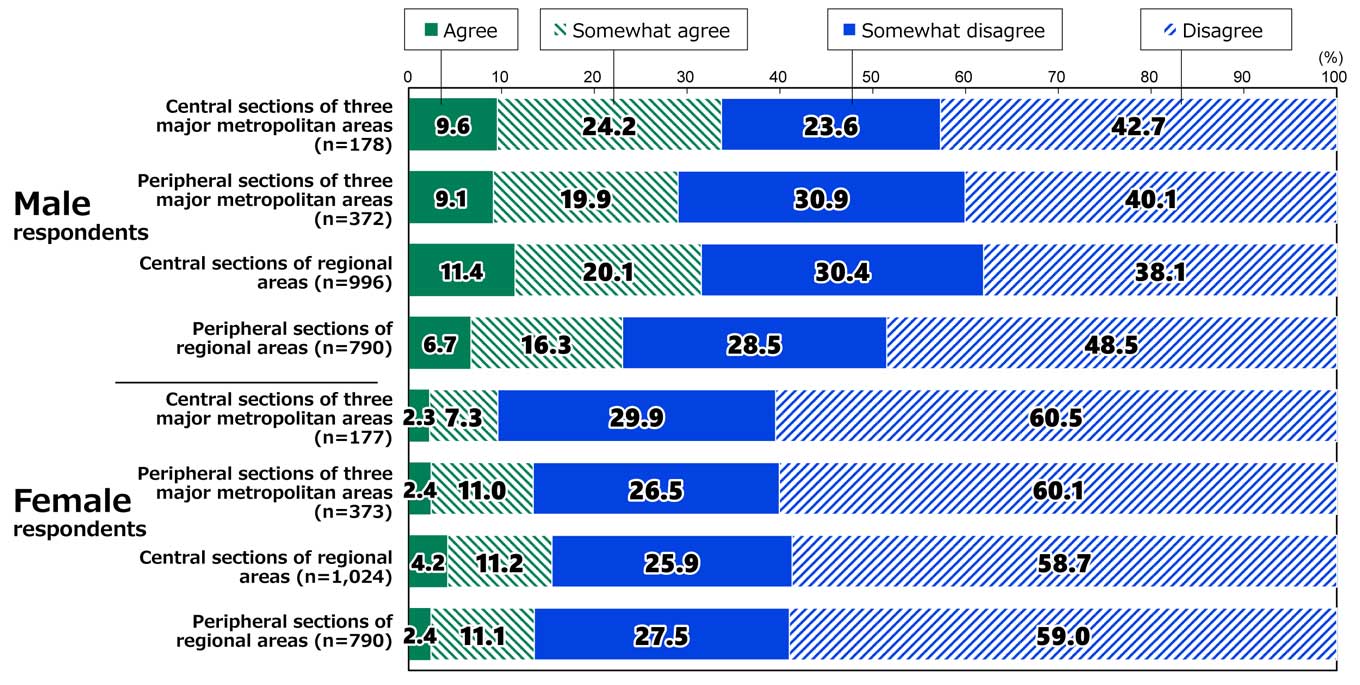
It is desirable to live as a married couple raising a child or children
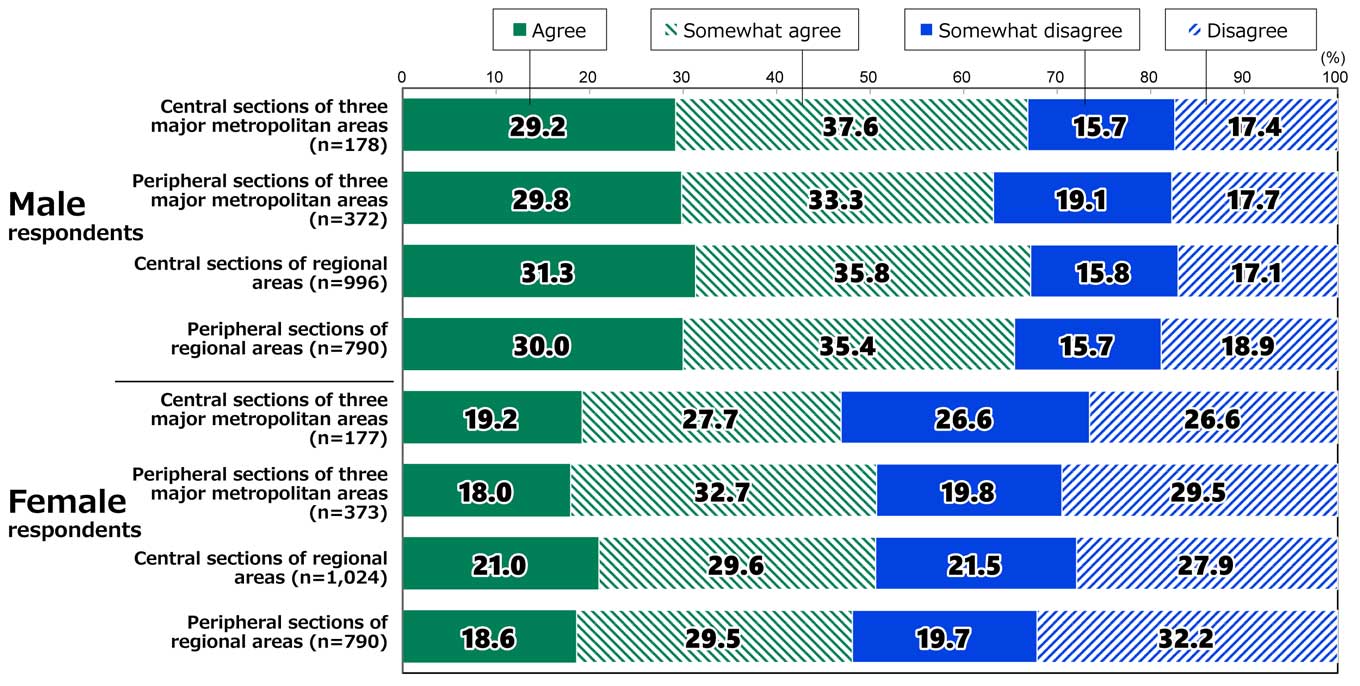
Involvement with society
The place where I live has traditions, culture, and history that I can be proud of
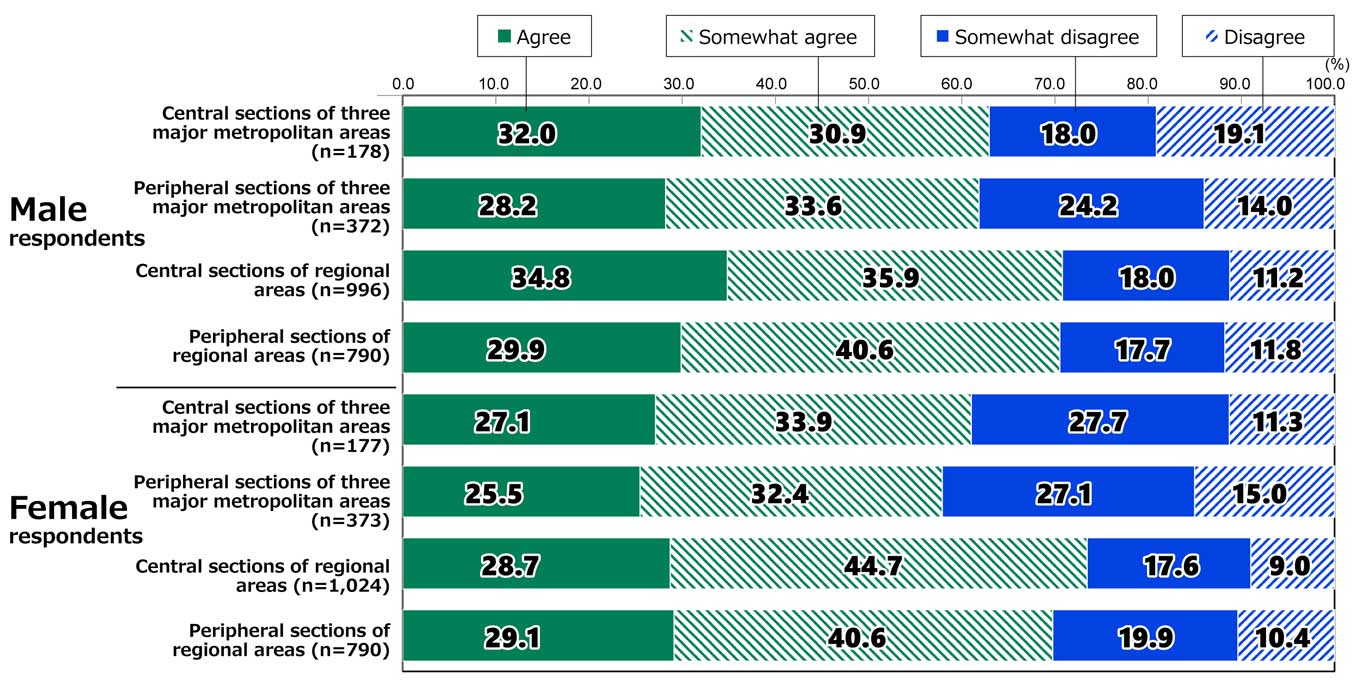
About the Awareness Survey of 18-Year-Olds
Revisions to Japan’s Civil Code lowering the age of adulthood to 18 for a range of activities, including voting, took effect in April 2022, making it even more important to understand and record the awareness of the 18-year-olds who represent Japan’s next generation. With this in mind, in October 2018 The Nippon Foundation launched the Awareness Survey of 18-Year-Olds as an ongoing survey of young men and women across Japan aged around 18, to survey their values, attitudes toward politics and elections, understanding of social issues, and other current themes on an ongoing basis.
About the 72nd Installment – Values and Daily Lives
| Survey coverage | 4,700 respondents aged 16-19 (primarily 17-19) from across Japan, comprising 100 respondents from each of Japan’s 47 prefectures |
|---|---|
| Survey period | July 3-10, 2025 |
| Survey method | Internet survey |
Related Link
Contact
Global Communications Team
The Nippon Foundation
- Email: info_global_communication@ps.nippon-foundation.or.jp
